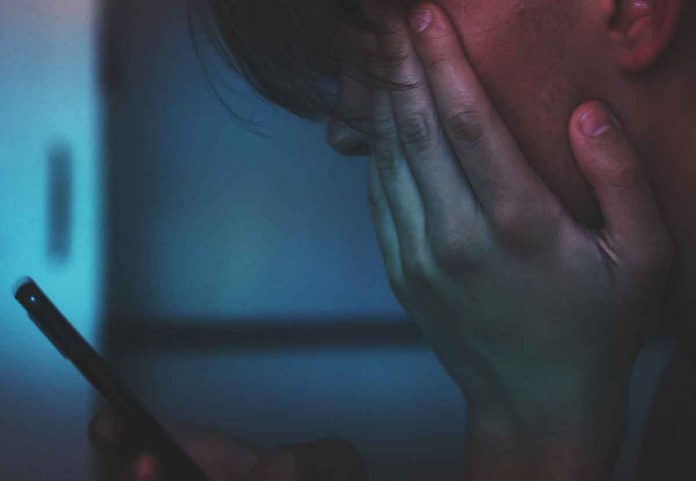
ILOILO City – The Department of Health (DOH) Region 6’s Regional Mental Health Connect Crisis Line logged a hundred percent increase in the number of callers seeking help.
Dr. Aimee Marie Gayomali, DOH-6 Mental Health Program Medical Coordinator, said they have noticed a significant increase after the region officially launched the mental health hotline in June this year.
Prior to the launching, DOH-6 has already established the hotline to provide immediate and effective health service.
Based on their record, the crisis hotline received 11 calls in January, 45 in March, 42 in April, 40 in May, and 42 in June. The number of calls doubled from July to August with 113 and 88 calls, respectively.
“We are not stopping, sige-sige amon advocacy,” said Gayomali.
The medical officer emphasized that most of those who reached out through the hotline only wanted to have someone to talk to because they find it easy to express their problems to someone who doesn’t personally know them.
“Ang naga-call sa aton indi man na siling nga may mental health condition na sila…iban na disturbed lang, kinanglan lang gid maistorya, kinanglan mag-vent out sang mga stress sa life,” she explained.
Those who are manning the mental health hotline are trained personnel, mostly nurses.
Gayomali said, if based on assessment a caller appears to have mental health condition, they are referred or properly channeled to the Department of Psychiatry of the Western Visayas Medical Center or West Visayas State University Medical Center for corresponding intervention.
Dr. Adriano Suba-an, director of DOH-6, has stressed that asking help and availing mental health services are not signs of weakness but of courage and hope.
Those who experience anxiety and depression can call or send a text message to DOH-6 mental health connect crisis lines 09985324047 or 09177759256, he said.
They can also reach out to mental health experts through DOH-6’s social media platforms such as Facebook (@mhwesternvisayas) and Instagram (@mhconnect1).
These crisis lines are open 24/7 for psychological first aid, psychosocial support, health education, and referral services.
The crisis lines primarily aim to prevent loss of lives due to suicide, provide immediate response to mental health crisis, improve availability and accessibility of mental health services, and provide psycho education through non-educational mode of information dissemination.
MENTAL HEALTH STILL A STIGMA
Gayomali lamented that mental health issue remains a stigma in the society and their goal is to eradicate it by instilling to everyone that all of us have our own share of mental health problems in our lives.
She emphasized that there is a need to accept that fact in order for one to understand and be of help.
“We have to be aware sang ginatawag nga mental health problem… We have to accept that mental health is here, it is present,” she said.
“Our goal here is to spread awareness nga tanan kita ga-suffer more or less sang mental health problems, not necessary mental health condition kay everyday, we face different stresses in life,” Gayomali explained.
To break the stigma against mental health, Gayomali said there is a need to delineate mental health problem from mental health condition.
“Not everybody nga may mental health problem are correlated na dayun sa mental health condition,” she added.
Meanwhile, Gayomali said that one can be of help to someone suffering from mental health problem if you are willing to spare time to be a listening ear to him or her, be it a friend or family.
For those who are not comfortable with their friend or family, the mental connect line is designed for them to turn to.
“It doesn’t mean gapanawag ka sa mental health hotline namon may ara ka na mental health condition. Iban mas gusto nila mag-talk sa indi nila kilala para wala judgement,” she added.
To relieve stresses or mental health problem, Gayomali said one should think of her or his coping mechanism and do that thing again.
“This is not our first time that we encounter stress, mental health problem. All we have to do is remember how did we cope with our previous problems, i-replicate ta lang na like mall hopping, watch movie or food trip. Call someone, or our hotline kon need mo na gid sang ma-advise sa imo,” she added.
LOCALIZING THE LINE
Prior to the launching of the mental health hotline in June, Gayomali said DOH-6 already oriented or trained all city health offices (CHO) and provincial health offices (PHO) in the region.
The goal is to have their own crisis hotline.
“Amat-amat gina-advocate namon at least one crisis hotline for every CHO and PHO,” she added.
For one, Iloilo province has already carried out their flagship program for mental health called ‘PRIME’ or Program for Resilience of Ilonggos in Mind and Emotion especially during the height of the coronavirus disease 2019 (COVID-19) pandemic.
It is proactive measures to help residents, especially those in the vulnerable sectors, cope with the psychological and social effects of the pandemic.
PRIME is part of Iloilo governor Arthur Defensor Jr.’s recovery program “Rehabilitation and Transformation of the Province of Iloilo to Catalyze Recovery (RT-PCR).”
“Component ini sang aton nga PLAN RT-PCR. It addresses the psycho-social effects of the collective stress and anxiety nga ginahatag sa aton sang COVID-19, but not only COVID-19 kundi sang kabilogan,” Defensor said.
According to the governor, PRIME is prioritizing individuals experiencing shocks due to the changes; having difficulties managing challenges in life; detected to have mental disorders; returning overseas Filipinos and locally stranded individuals; and frontline workers exposed to stressful work demands and environment.
There are also six strategies in the implementation of PRIME. These were promotion like information education campaign materials, guesting in radio programs, creation of Facebook page and awareness on netiquette rules; detection and prevention; provision of psychological first aid and psychosocial processing; capability-building for frontline partners and community members; monitoring and evaluation and collaboration./PN




